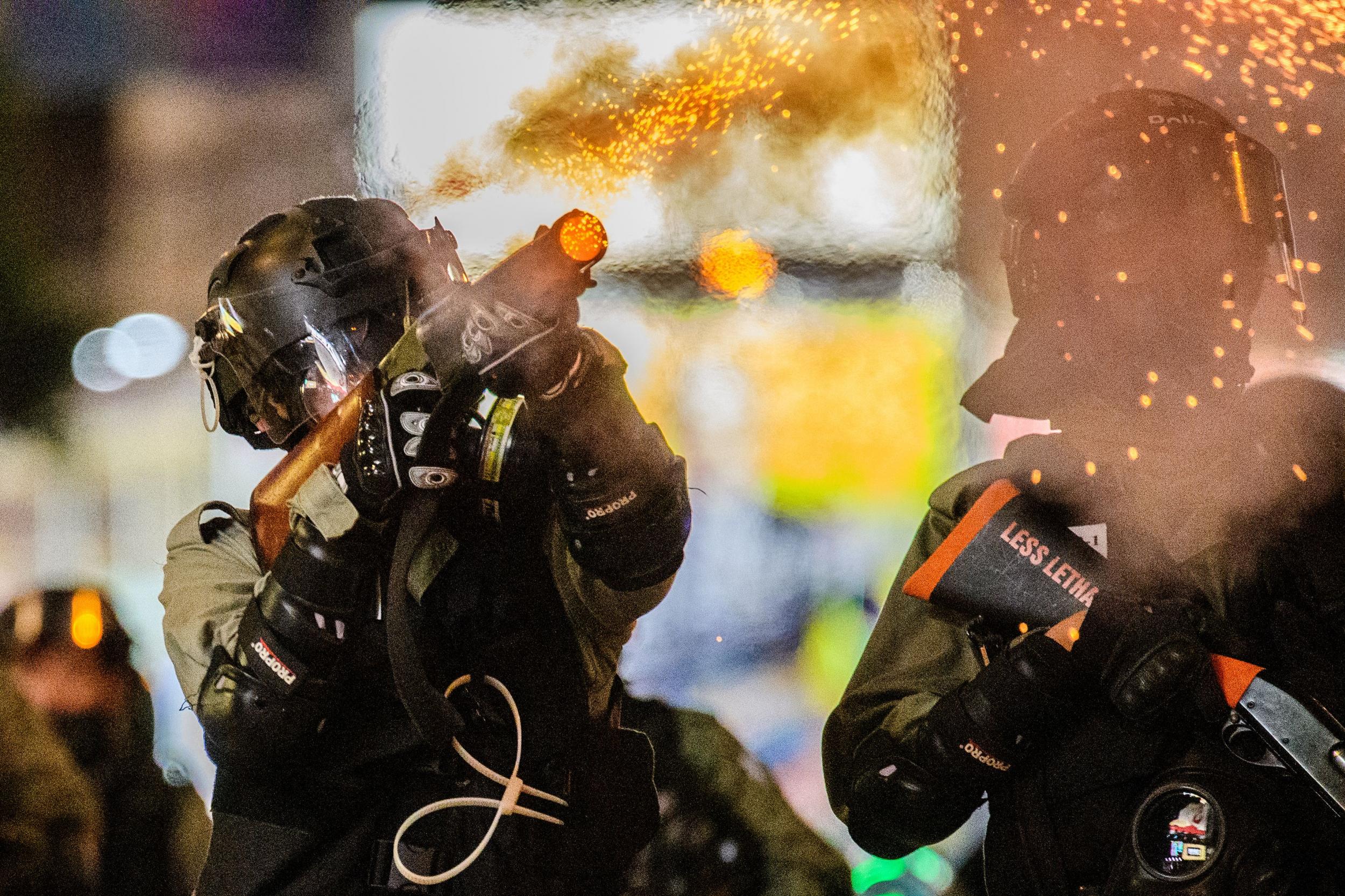UK supplies human rights abusers with tear gas, rubber bullets and riot gear
Millions in exports goes to 52 countries

Britain is supplying tens of millions of pounds worth in tear gas, rubber bullets and riot gear to countries found to be breaching human rights, government records show.
Ministers have issued export licences for such arms since 2010 to countries including Oman, the United Arab Emirates, Saudi Arabia, Qatar, Egypt, Brunei and Bahrain, all of which have had concerns raised about human rights.
They have also been sold to Hong Kong, where pro-democracy campaigners have faced attacks by armed police.
The revelation about the sales comes after widespread calls by MPs and campaigners to suspend such sales to the United States, in the midst of the crackdown on Black Lives Matter protesters.
At least £34m in licences have been issued in the last decade, with tear gas and other “crowd control” equipment going to 52 countries.
But the true value of all the exports will never be known because the government has issued opaque “open licences” to manufacturers that allow them to export as much as they want without submitting records.
Under the rules of the UK’s arms export control regime, arms should not be sold if there is a risk they could be used for “internal repression” by the forces buying them.
But ministers have been accused of making a mockery of the regulations despite huge pressure to end sales to repressive regimes.
In 2014 Hong Kong Police issued UK-produced tear gas against pro-democracy demonstrators, and the British government pledged to keep a closer eye on future sales.
But 12 months after the event the UK government was again allowing the export of the same equipment. Last summer it was used against demonstrators again, leading to a further halt in sales.
Other known uses of UK-made riot equipment include deliveries to the Egyptian regime in 2011, which used tear gas against protesters. 800 people were killed in the bloody crackdown by Egyptian security forces.
Over 755,000 people have signed a petition calling on the UK government to suspend export licences for such products to the US, where tear gas and rubber bullets are being used against peaceful Black Lives Matters demonstrators, as well as a number of journalists covering the events.
Ministers gave further details of those export licences this week, with licences for riot shields, electric shock devices, CS hand grenades, tear gas, and so-called riot control agents. Licences have also been issued for rubber bullets.
Andrew Smith of Campaign Against Arms Trade said: “Tear gas has been used in repression around the world, including by a number of regimes that have bought it from the UK. The appalling scenes that we have seen in the US show how dangerous it can be, especially when put in the hands of violent and repressive police forces.
“These sales should never have been approved. We don’t know how this tear gas will be used in the future, or who it will be used against. What we do know is that there is a clear risk that it will be used for repression. Sales being approved today could be used in state violence for years to come. The best way to ensure that UK-made tear gas is not used against protesters is to stop selling it.”
Tanker truck drives at protesters in Minneapolis
Show all 14International trade minister Ranil Jayawardena said: “All export licence applications are assessed on a case-by-case basis against the Consolidated EU and National Arms Export Licensing Criteria.
“In reaching a decision, the Department for International Trade receives advice from a number of departments including the Ministry of Defence and the Foreign and Commonwealth Office. Together, we draw on all available information, including reports from NGOs and our diplomatic missions.
“The Consolidated Criteria provides a thorough risk assessment framework and requires us to think hard about the impact of exporting any equipment. These are not decisions my department takes lightly, and we will not license the export of items where to do so would be inconsistent with the Consolidated Criteria.”
Subscribe to Independent Premium to bookmark this article
Want to bookmark your favourite articles and stories to read or reference later? Start your Independent Premium subscription today.

Join our commenting forum
Join thought-provoking conversations, follow other Independent readers and see their replies